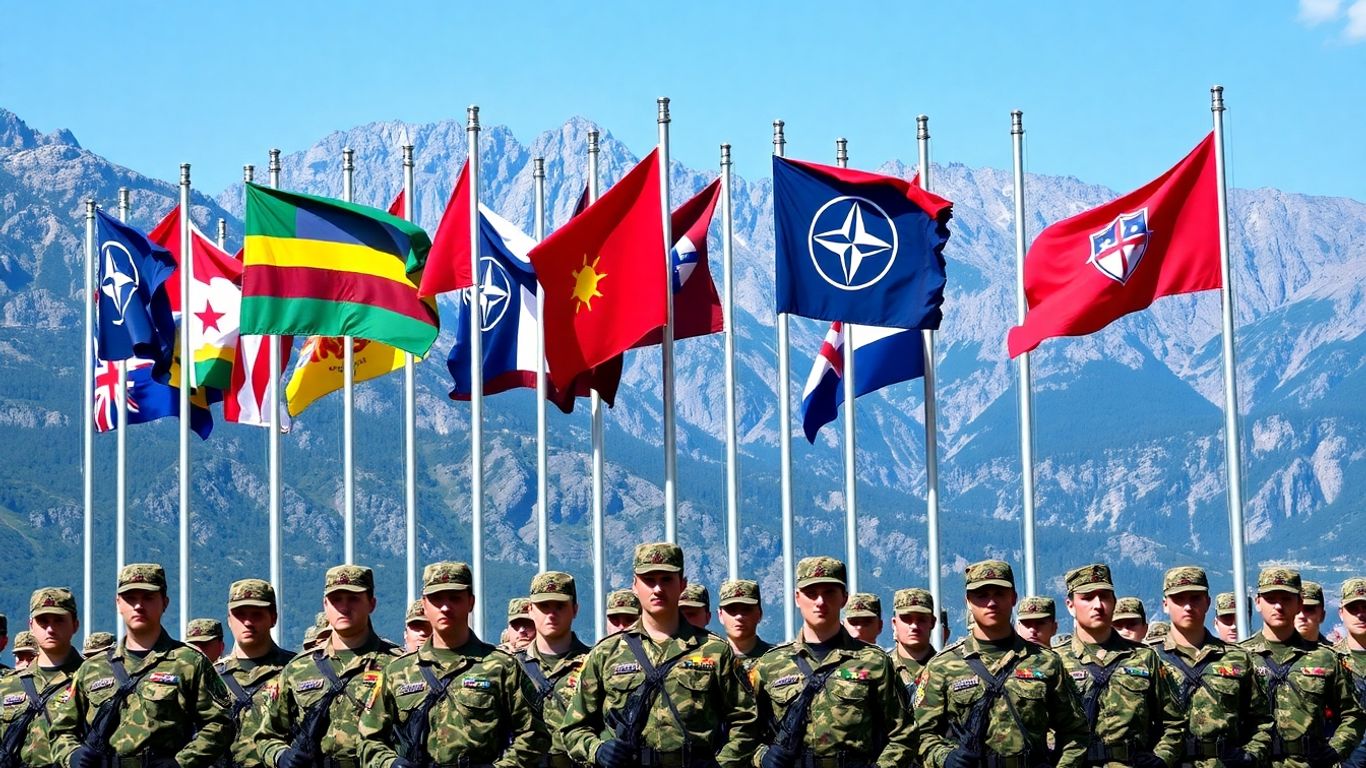NATO leaders and security experts recently convened to address the escalating instability in the Western Balkans, a region increasingly viewed as a potential "powder keg" of Europe. The alliance reiterated its unwavering commitment to the region’s stability, sovereignty, and territorial integrity, emphasizing the need for accelerated integration into Euro-Atlantic structures to counter external interference and internal conflicts.
Key Takeaways
- The Western Balkans remain strategically vital for European security and stability.
- A "solution for the Serbia node" is crucial for regional progress and EU/NATO accession.
- External interference from Russia and China poses a significant threat.
- NATO’s commitment to the region’s security and stability is unwavering.
Addressing Regional Instability
Discussions highlighted that the Western Balkans face a complex web of challenges, including political and identity tensions, renewed secessionist aspirations in Bosnia and Herzegovina, persistent instability in Serbia, and the unresolved Belgrade-Pristina dialogue over Kosovo. Experts warned that without decisive action, the region could once again become a flashpoint, jeopardizing broader European security.
NATO Secretary General Mark Rutte’s recent visits to Sarajevo and Pristina underscored the alliance’s dedication. In Bosnia and Herzegovina, Rutte emphasized the importance of the Dayton Peace Agreement and warned against actions undermining its stability. He stressed that NATO and its partners are present and will not allow a security vacuum to emerge.
In Kosovo, Rutte highlighted NATO’s 30-year commitment to peace and stability, spearheaded by the KFOR mission. He reiterated NATO’s support for the normalization of relations between Belgrade and Pristina, facilitated by the European Union, as the only path to lasting peace and stability.
Strategic Imperatives for Integration
Experts emphasized that integrating the Western Balkans into the European framework is a strategic necessity. This involves not only national reforms but also enhanced regional cooperation. While the EU’s accession process has been slow, rival powers like Russia and China have actively sought to increase their influence through economic and political means.
To counter this, a coherent strategy is needed, combining stringent conditionality for EU accession with credible incentives. This includes strengthening governance, the rule of law, and regional cooperation in trade, security, and infrastructure. Economic development, despite challenges like brain drain, offers significant potential, with strategic investments in infrastructure and energy crucial for resilience.
NATO’s Role and Future Engagement
NATO’s continued engagement, including joint exercises and capacity-building, is seen as vital for strengthening regional resilience and deterring destabilizing influences. The alliance’s presence through KFOR in Kosovo and its support for security sector reforms in Bosnia and Herzegovina demonstrate its commitment. The ultimate goal remains the full membership of Western Balkan countries into the EU and NATO, ensuring a secure and stable future for the region and the wider Euro-Atlantic area.
Sources
- Balkans Breakthrough for Ukraine: Bring Serbia into NATO & the Kosovo Model into the Donbas, The SAIS Review of International Affairs.
- Western Balkans could once again become "the powder keg of Europe", "a solution for the
Serbia node" must be found, vijesti.me. - News: NATO reaffirms its commitment to Western Balkans stability, as Secretary General Rutte wraps up
visits to Sarajevo and Pristina, 10-Mar.-2025, NATO – Homepage. - Reintegrating the Western Balkans: Strategic Imperatives for EU and NATO, Global Policy Journal.
- The Balkans: How to stabilize the ‘powder keg’ of Europe, The World Economic Forum.






